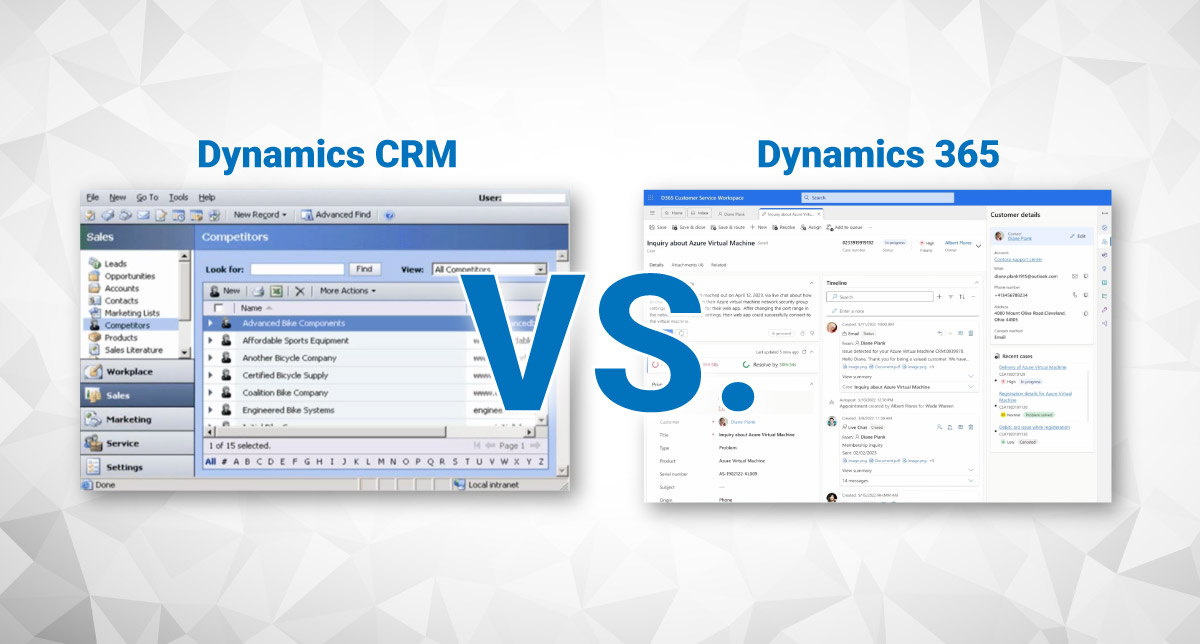Dynamics CRM and Dynamics 365 Defined
First launched in January of 2003, Microsoft CRM (customer relationship management) was Microsoft’s original business software made to help companies manage customer data and track sales and service activities. Then in 2005, it was renamed Dynamics CRM (version 3.0) to align the product name with Microsoft’s ERP offering, Dynamics AX. With this new version came more functionality, including marketing campaign capabilities and the ability to create custom entities (tables).
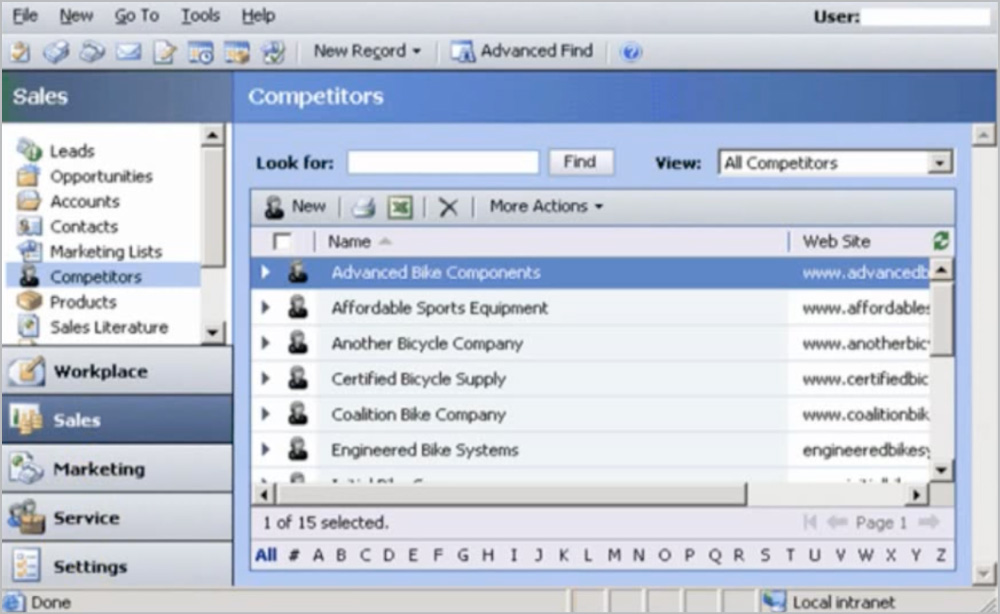
Dynamics CRM 3.0
Later, in 2011, came the launch of Dynamics CRM Online. This was a game-changer for Microsoft as it marked the first step into selling cloud application services. Some notable breakthroughs included in the cloud version were browser-based and mobile access, real-time dashboards with business intelligence, and flexible cloud development for better configurability to meet business needs.
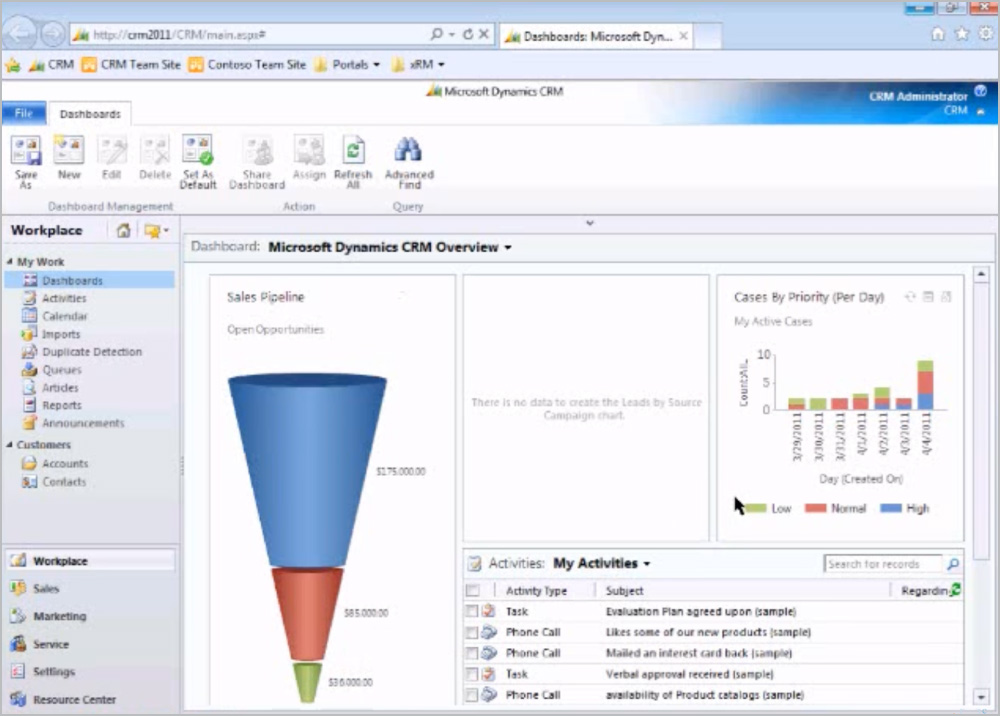
Dynamics CRM Online
Fast-forward to November of 2016, and the name Dynamics 365 was born. The first applications released under the Dynamics 365 umbrella included:
- Dynamics 365 for Sales
- Dynamics 365 for Customer Service
- Dynamics 365 for Marketing
- Dynamics 365 for Field Service
- Dynamics 365 for Project Service Automation
- Dynamics 365 for Finance and Operations
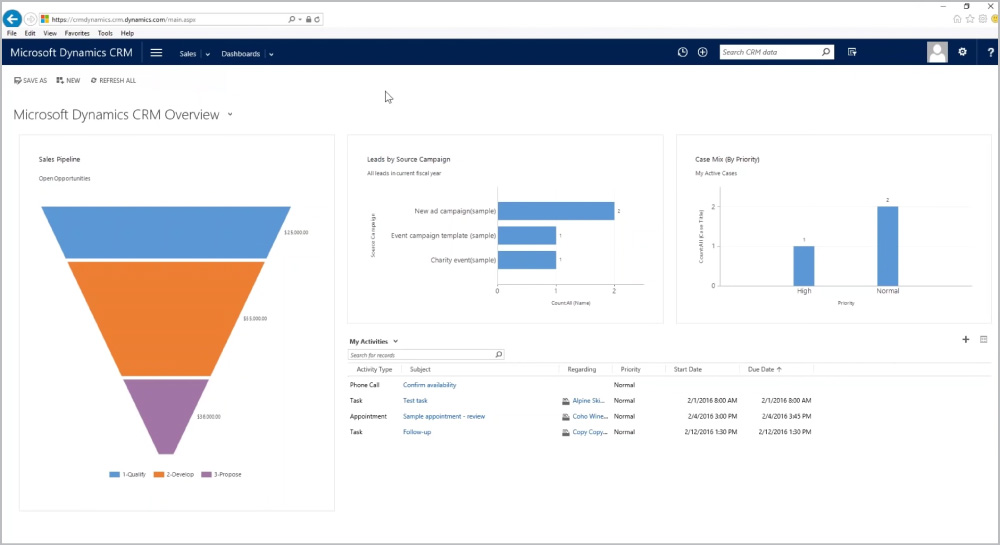
Dynamics 365 2016
With Dynamics 365, front and back-end operations are performed from a single platform for an expanded suite of CRM applications; most popular of which are sales, marketing, and customer service. Additionally, the pay-per-month Software-as-a-Service (SaaS) products contain pre-built integrations. This advanced version delivered more ways to take advantage of information in cloud services like Azure and Office 365.
Today, the Dynamics 365 software suite for CRM has expanded to also include solutions for Relationship Sales, Customer Insights, Customer Voice, and Remote Assist. You can also dramatically increase productivity in the system using AI case summaries and natural language prompts via Microsoft Dynamics 365 Copilot.
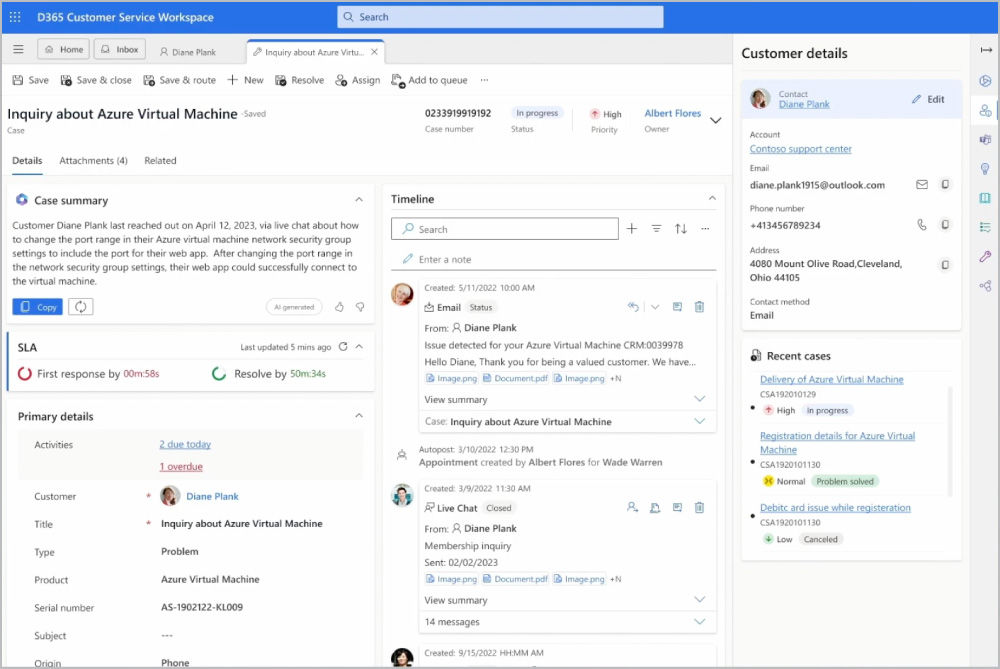
Dynamics 365 Customer Service with Copilot
Licensing Differences
Licensing is an important factor when switching from Dynamics CRM to Dynamics 365. Both offer licenses sold per month per user. The difference is with Dynamics CRM, you pay for a full license whether you use all the functions. With Dynamics 365, you’re licensed only for the particular applications and functions you need.
Cloud Integration and Integration with Other Products
Since Dynamics 365 is completely cloud-based, you can access your apps on any device anywhere there’s an internet connection, enhancing flexibility for organizations. With a SaaS licensing model, the days of spending money on maintaining local systems (like Dynamics CRM) are over. Previous systems had cloud-based and on-premises solutions, but there was a smaller usage of the cloud.
There is also the seamless integration of Dynamics 365 with other Microsoft services and products, collaborating and sharing information with your team effortlessly. Popular services and tools include:
- Office 365:Dynamics 365 integrates with Office 365 which includes Excel, Word, Outlook, and PowerPoint. Any Dynamics 365 data can be accessed right from any of these tools.
- Azure: Dynamics 365 is part of the same cloud platform as Azure. This means you can use cloud storage, enhanced security, and other services offered with Azure.
- LinkedIn: Sales headhunters have access to over 450 million sales professionals on the social media platform, making it easier to recruit and track new clients. When there are changes to LinkedIn, all the account information and contact information can be automatically updated using the native integration with Dynamics 365.
Dynamics CRM vs. Dynamics 365 is No Contest
The bottom line is, Dynamics 365 is a vast improvement over Dynamics CRM when it comes to AI, superior analytics, cloud integration, and operating with other Microsoft products. Dynamics 365 at its core still provides customer relationship management, but it takes it to the next level. Businesses can take advantage of the newest innovations, using them to create customized business solutions. Dynamics 365 helps organizations operate more quickly and more effectively, as well as enhances overall functionality.
As a Microsoft Gold Partner, Arctic IT’s professional Dynamics 365 implementation services are well-established to meet your objectives and needs. Our solutions are configured to your processes and will help you run your business at peak performance. For more information, connect with us today.

By Sarah Jelinek, Director Power Platform Solutions at Arctic IT

